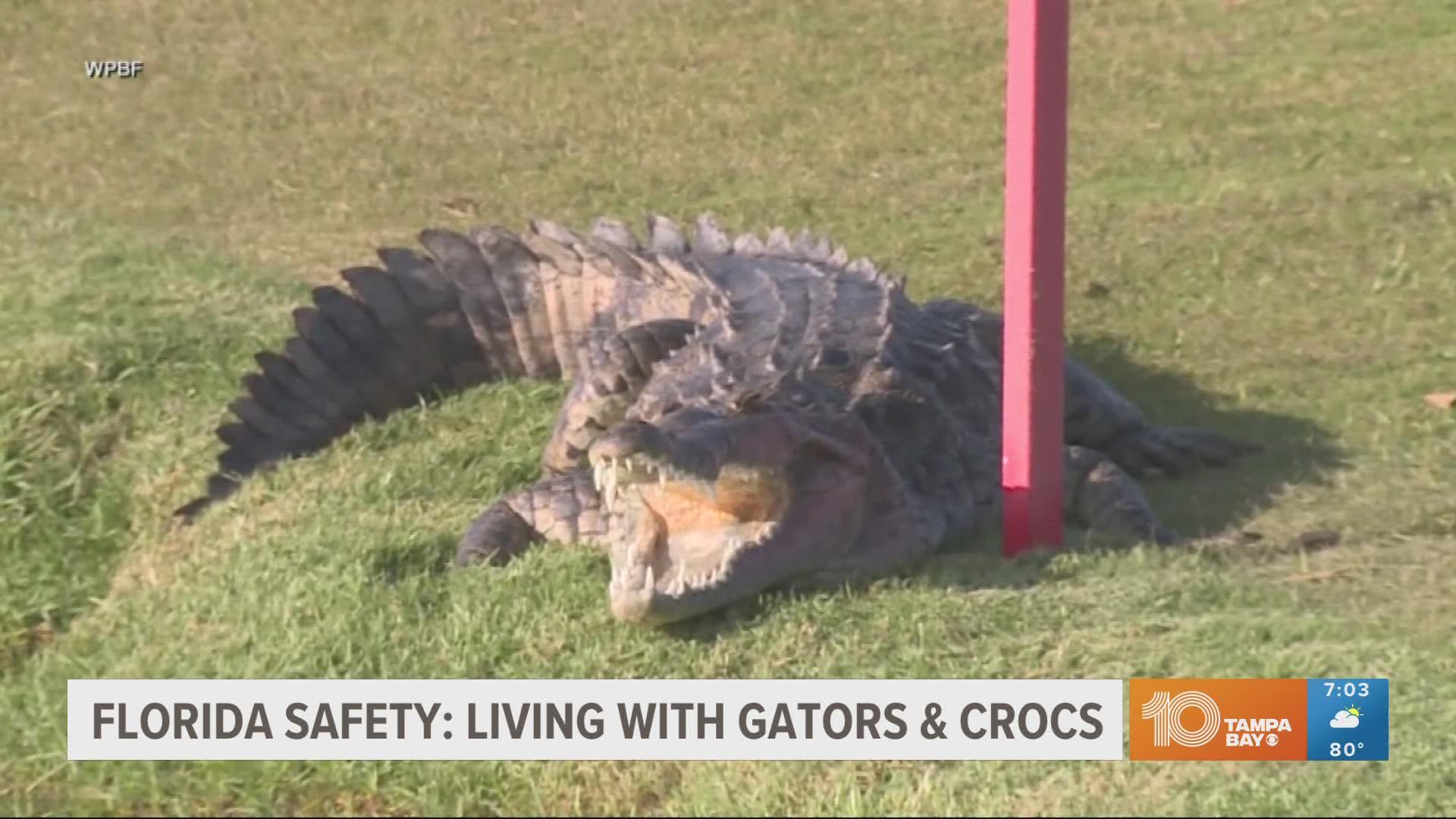ST. PETERSBURG, Fla. — Florida Fish and Wildlife estimate there are 1.3 million alligators that call the Sunshine State their home.
Although alligator attacks on humans are rare, it's still very important to take certain precautions if one crosses your path. FWC says to keep a safe distance if you see an alligator.
In general, alligators are not too keen on hanging out around people. They will actually try to avoid you entirely unless they’re hungry and have been fed by humans before, which is FWC's second point — never feed an alligator.
10 Tampa Bay reached out to ZooTampa’s Spencer Schultz to ask if gators view humans as food. Schultz is a herpetologist – or someone who specializes in the study of reptiles and amphibians.
“I don’t think alligators naturally view us as a meal,” Schultz explained. “They learn from people feeding them. Chicken or other meats and stuff. Smaller food items. So, I don’t think that they look at humans as food items. Now, they might look at small dogs as a quick meal. But not humans themselves.”
It's also illegal to feed alligators. FWC says if you see someone feeding an alligator, call FWC’s Wildlife Alert at 888-404-FWCC or visit MyFWC.com/WildlifeAlert
FWC suggests swimming only in designed swimming areas during daylight hours because alligators are most active during dusk and dawn.
Back in May, a Largo man died after being bitten by an alligator while he was in a lake looking for Frisbees.
Largo police said they believe the man died "in the nighttime hours" as he did not appear to have been in the lake for an extended period of time when his body was discovered.
FWC also says it's important to keep pets on a leash away from the water's edge and never let them swim in fresh or brackish water — even for short periods.
In June, a Tallahassee man was playing with his unleashed dog near water at a popular park when it was attacked by an alligator, dragged into the water and eaten, wildlife officials said.
If you think an alligator poses a threat to people, pets or property call the FWC’s Nuisance Alligator Hotline at 866-FWC-GATOR(866-392-4286).
The FWC places the highest priority on public safety and administers a Statewide Nuisance Alligator Program (SNAP) to proactively address alligator threats in developed areas while conserving alligators in areas where they naturally occur.
Find more resources about living with alligators at MyFWC.com/Alligator.

